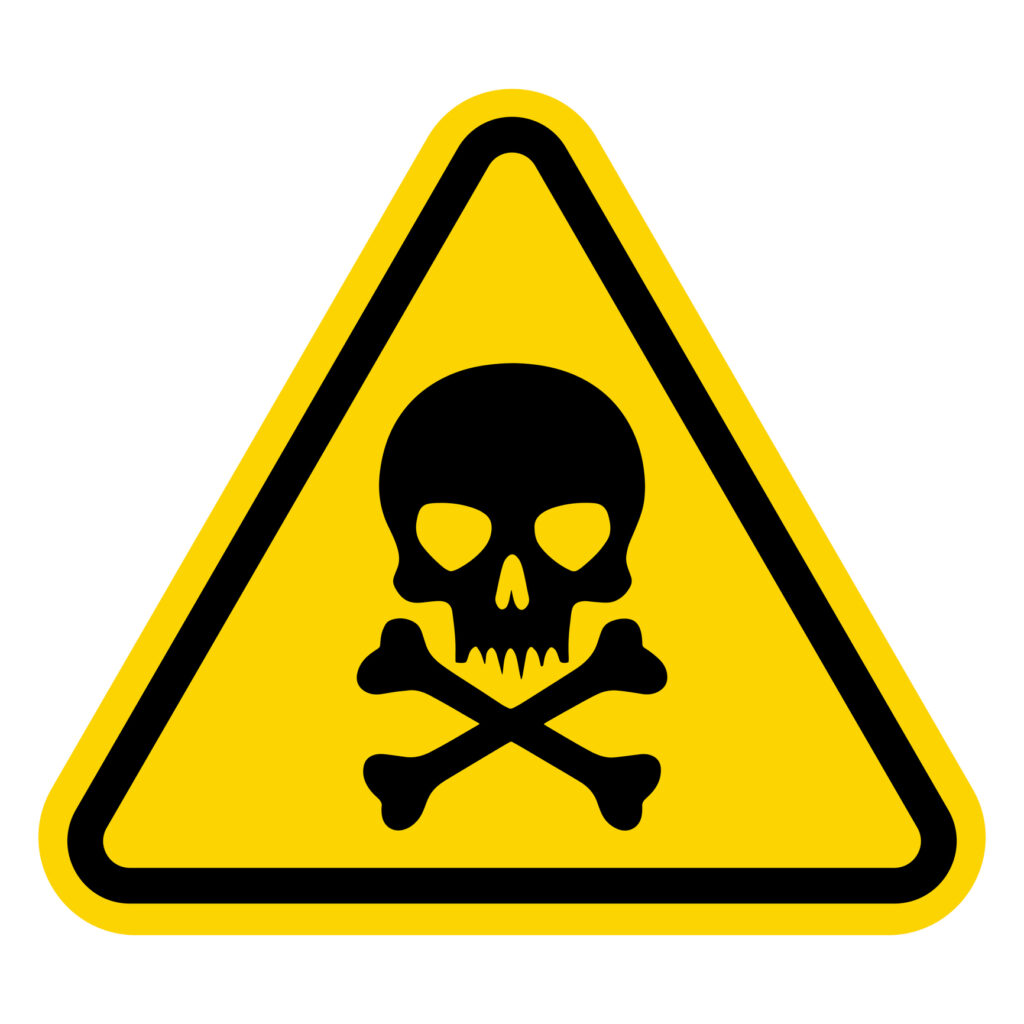Ever since the pandemic, our work lives have been put under a microscope. People all over the country are determined to live their best lives and find a career they can thrive in. Conversations surrounding the workplace have become more and more prominent. The younger generations have especially been forthcoming with many details that were once private, boldly sharing their salaries or regaling tales of injustices faced while on the clock. One word we constantly hear is "toxic." Voted Oxford Dictionary's "Word of the Year" in 2018, this popular word has yet to lose its steam as toxic relationships are a forever part of an ongoing discussion--and this includes our relationships with our jobs.
Workers are prioritizing their mental health more than ever and keeping a sharp eye out for signs of a job that may have a negative effect on it. After all, you can tell a lot about what a workplace will be like solely based on the interview process. If you're in the market of applying to a law firm, or you head up an excellent firm and want to be sure you're making a good impression to prospective employees, read on about which signs scream, "This is a toxic workplace!"

High turnover. Do you constantly see jobs popping up from the same place? It could be a sign of growth...but it could also be a sign of high turnover. It's extremely telling if a workplace is struggling to keep a department staffed for more than a year. If you fancy yourself an internet sleuth and want to dig a little deeper, LinkedIn might have information. Since people post their resumes and work history to this platform, you can see for yourself how long someone typically works in a certain job.
Transparency. The next time you are in an interview, ask why the previous person left the job you are applying to. If your interviewer hems and haws, and doesn't provide a clear answer, approach with caution. Make sure to get your questions in about pay, PTO, work-life balance, potential for growth, your interviewer's favorite part of their job, and anything else important to you. Pay close attention to whether you get a clear answer or they dodge the question.
If you're in the position of interviewer, strive to be transparent and honest. After all, you should want to find a good fit for the role. The interview process is time-consuming; you don't want to be doing it again a month from now after your new employee turned in their two-week notice because the job wasn't what they expected.
Negativity. Keep an ear out for negative speak when visiting firms. Does the boss complain about clients or take shots at the employee who left this role? What's the general attitude of the workers you pass by? Do they seem relaxed and friendly or glassy-eyed and unengaged?
Sometimes, you might need to read a little more into it. Positive statements could have a negative underbelly. For example, if you are promised ample opportunity to rise through the ranks...is this because the company is expanding and prioritizing growth? Or is it because overworked higher-ups are constantly heading through a revolving door to disembark for greener pastures?

"We're like a family!" This popular phrase, perhaps once found to be comforting, has become a bright red flag to younger generations. It's a sign that a workplace might try to push boundaries and place themselves at a higher level of priority in your life, equating them with your true family and forcing you to choose between them. Work-life balance is more important than ever and setting healthy boundaries is a major part of that.
If you're interviewing prospective employees, resist from parroting this well-worn phrase. Instead, opt for "We have an excellent work culture here," or "We have a great team who will always have your back." And always respect that your employees have a life outside work, and you should not expect them to be checking their email at all hours of the night and day.
They pull the rug out from under you. Have you ever gotten to an interview only to find out the pay wasn't what was advertised, or even the job you're interviewing for has suddenly been changed up on you? Perhaps you learn they opted for an inside hire and suddenly you're applying for a less prestigious role than promised. Or maybe the job description wasn't entirely honest about certain aspects. Unfortunately, this is a common occurrence, and you should take it at face value. If you get hoodwinked before you've even gotten the position, it's a tell-tale sign of what working at this job would be like. Trust between an employer and employee is of utmost importance. Don't hesitate to step away if you find yourself in this situation.
Rules for thee, not for me. As you leap through the many hoops of the interview process, pay attention to the standards you're held to vs. your prospective job's. Do they expect you to drop everything at their command? Do you struggle to receive communications from them? Does the boss show up 15 minutes late to their interview? All of this blatant disrespect for your time foretells what working for them will be like.
On the other side of the coin, prioritize communication when you're in control of the interview process. Do whatever you can to keep your appointments. If you do happen to run late to an interview, be prepared with an apology and a reason as to why.

Glassdoor reviews. You can find reviews on anything these days! As you race to Glassdoor to check reviews on a certain company, keep in mind that people are more likely to review if they've had an extremely positive or negative experience with something. If your prospective job has a single negative review from an irate employee, take it with a grain of salt. However, if you spy a pattern of unhappy workers with similar details on their experiences, it might be time to run the other way.
A toxic workplace can wreak havoc on your mental health. It might not always be obvious right away. In fact, the thrill and relief of finding a new job might leave you feeling great. But as time passes, boundaries break, and burnout looms, you might find yourself becoming the boiled frog: a frog, once happy in a pot of water, who realizes too late that the heat is being turned up and up until he's left boiling. Don't become the boiled frog and continue to look for signs of a toxic workplace wherever your career path takes you!


